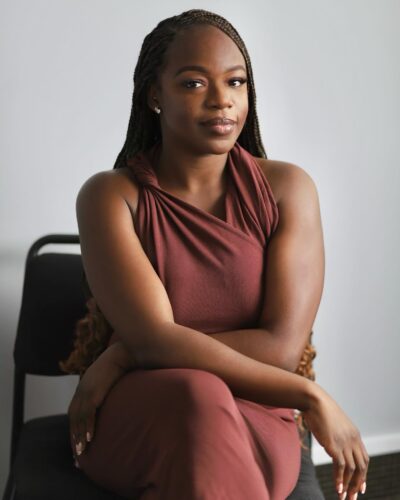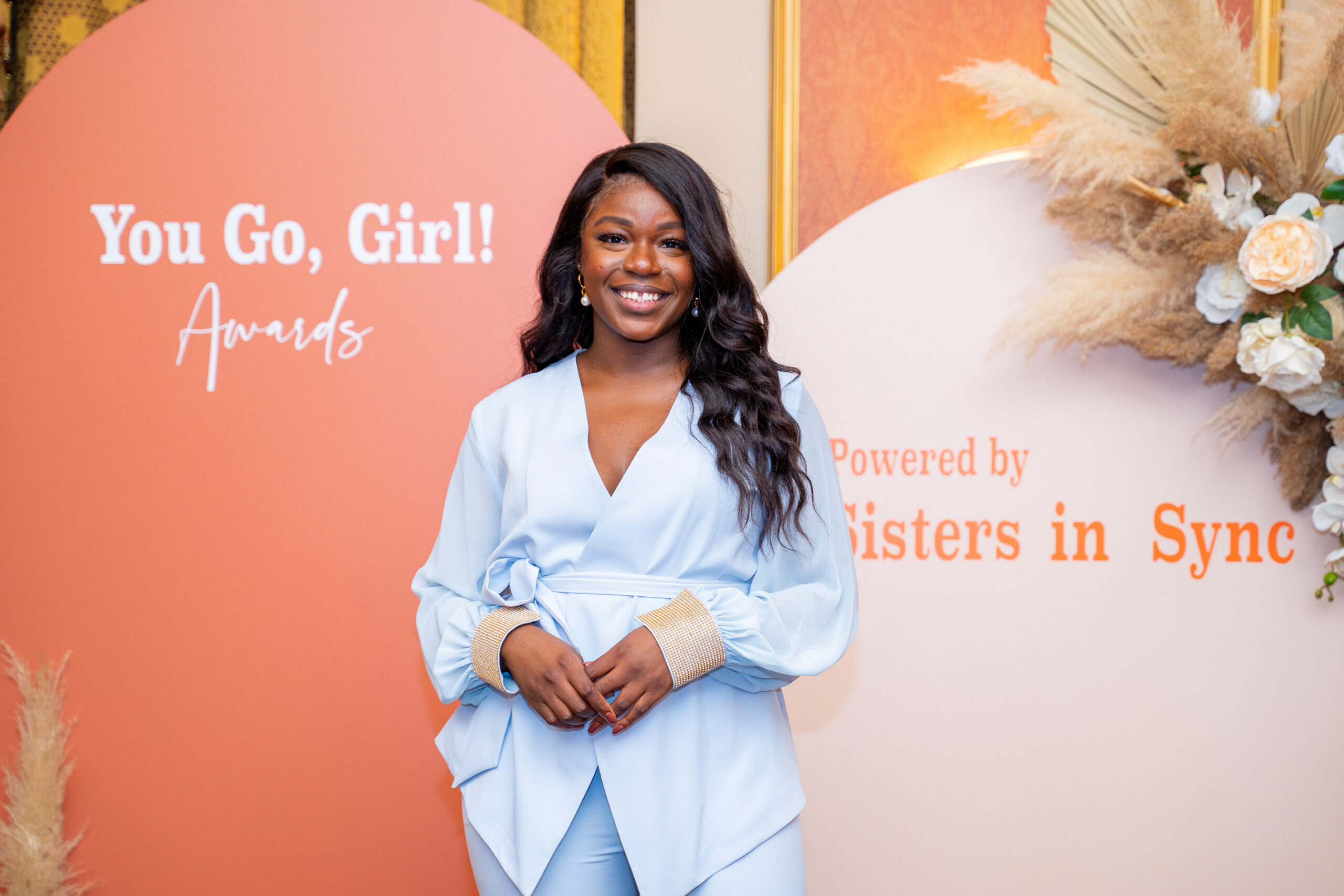When Joëlle Kabisoso was 17 years old, she was a victim of a racially-motivated sexual assault, an event that was then posted online for countless people to witness. What began as a heinous and traumatizing event turned into a legacy of growth, resilience and community-building through her nonprofit Sisters in Sync, a growing community of Black women and girls who work towards empowerment, sisterhood, education and transparency.
Since its inception, Sisters in Sync has impacted the lives of thousands of women and girls through a number of programs and initiatives, including BecomingHER, a 12-week program intended to support the transition from girlhood to womanhood from the perspective of self-esteem, emotional intelligence, and resilience. With their 4th annual You Go Girl! Awards on October 11, The International Day of the Girl, Joëlle is gearing up to celebrate another year of Black excellence.

Recently named one of the Top 100 Black Women to Watch in Canada, Joëlle’s vision for the future of Sisters in Sync, and ultimately for the safety, empowerment and unity of Black women and girls across the world, is clear and bright.
“Since we place a strong emphasis on identifying and addressing the adultification bias experienced by Black girls, our focus is on providing comprehensive, wraparound services that address their health, socioeconomic challenges, early pregnancy, and other critical areas of support,” says Joëlle. “It’s important to us that we stay closely attuned to the needs of our girls, so that we operate with responsiveness rather than reactiveness.”
In addition to plans to establish a strong Sisters in Sync community in at least one city across each province in Canada, she also aims to expand internationally, particularly to young Black girls in the Democratic Republic of the Congo and South Africa.
A major factor in Joëlle’s push to start Sisters in Sync was (and continues to be) the disproportionate rate at which Black women and girls are impacted by gender-based violence. As a victim of an attack that was motivated by not only her race but also her gender, Joëlle’s trauma was then plastered online by her attackers for others to share in the racist and misogynistic aggression.
“Black women and girls, particularly those in marginalized communities, face disproportionate online harassment due to intersecting factors like race, gender, and sexual stigma, often driven by harmful stereotypes. Systemic racism further contributes to underreporting and inadequate enforcement of protection policies, leaving their experiences dismissed and silenced,” Joëlle says.

With a plethora of platforms on which to share our lives in all of their joys and mundanity, we often underestimate the risks of sharing personal details online, forgetting that these screens don’t offer us as much protection as we think. Joëlle implores that “while sharing moments online might seem harmless or exciting, it’s important to think about how even ‘private’ posts or pictures might affect your future, especially with the rise of AI, which can distort images or videos in harmful ways. Before sharing anything, ask yourself: Who else could access this content? Where might it end up, even if I delete it?”
Joëlle’s best advice? “Stay informed and understand what it means to navigate cyberspace. It’s not always what we do online that harms us, but what others do, which can sometimes be beyond our control.”
These days, Joëlle’s focus is on maintaining a balance between privacy and visibility. “It’s a delicate balance, but one that feels essential to maintaining control over my digital identity. This experience has also empowered me to advocate for other victims by sharing best practices and practical steps for safeguarding, collecting evidence, and reporting any incidents that may occur.”
While aware of the risks, Joëlle refuses to let that fear prevent her from celebrating her many successes with her online community. And with successes like being named the 2022 L’Oréal Paris Women of Worth, and honoured with the 2024 Governor General’s Award in Commemoration of the Persons Case, she has so much to be proud of. Serving over 100 girls each year, with a growing waitlist, Sisters in Sync is just the beginning.
“I am incredibly proud of the community we’ve built. I never imagined having so many people following my journey and actively wanting to get involved with our mission,” she says. “I am also proud of the various awards I’ve received—not for personal recognition, but because they highlight the story of a Black woman often overlooked in this space. This visibility is making people listen and pay attention to the issues that affect us.”

On Friday October 11, the International Day of the Girl, UNICEF’s theme is “Girl’s Vision for the Future”. Sisters in Sync’s 4th annual You Go Girl! Awards, celebrating the potential and achievements of Black girls ages 8-21 in the city of Hamilton, also happens to fall on that date.
“The theme […] perfectly aligns with the work Sisters in Sync does with younger girls in the Hamilton area. Numerous young girls have shared with us that they never truly envisioned their futures until they participated in Sisters in Sync’s after-school program, BecomingHer. For us, this theme reinforces what we have always advocated for and spoken about,” says Joëlle.
Ultimately, Joëlle’s one final piece of advice for young Black girls is simple: “Tell your story! Someone is listening, and lives are being changed. There is no shame in what you have gone through. If you ever feel alone or like no one will understand you, know that there is a community of girls at Sisters in Sync ready to say, ‘We got you, sis!’”




 Follow Us On Instagram
Follow Us On Instagram
